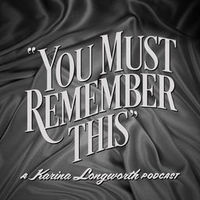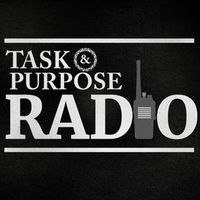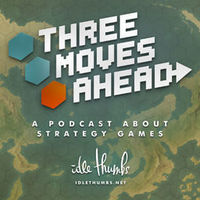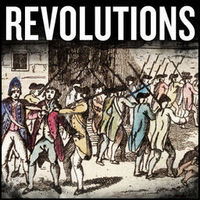Podcasts
published 13th May 2017
Podcasts, I’m told, are the hot new thing. Since Serial, a breakout hit from the makers of the popular U.S. radio show “This American Life”, there’ve been no end of fluff pieces on The Power of the Podcast. Yahoo has a classic example:
"With its growing audiences and unique star-making ability, the power of the podcast is undeniable."
Recent media blitz aside, people have been listening to recorded audio through the internet for a long time. Early experiments had been around since the early 2000s, and internet radio existed even earlier. Apple introduced support for podcasts in 2005, and within a year big radio networks like the BBC, CBC, NPR and more had started using iTunes for distribution.
The use of the internet makes consuming podcasts easy and convenient, as opposed to a traditional radio schedule. They tend to fill spots in my day, when out running, food shopping or doing odd jobs. As well as their convenience, there’s also something about the format of a podcast that feels a little closer to the listener than radio. A complete episode is almost always hosted by the same person, and each episode can run for as long or as short as they like. When you listen to the radio, you are safely escorted from one polished piece to the next. With podcasts, it’s not uncommon for a host to open with apology for “the terrible audio quality this week”. Unlike radio, where dead air is considered a grievous sin, podcasts are free to stretch out their length, and talk with mumbles or silent pauses like in regular conversations.
It’s not that traditional radio outlets, like say the BBC, don’t put out their own excellent podcasts - they do. But the potential for podcasts stretches beyond radio to the copper cables of the internet. Because the barrier to entry is so low, requiring only a microphone, some simple recording software, and an internet connection, the breadth and variety of podcasts is much wider than traditional radio. Podcasts have classic show topics like comedy, news and politics that sit alongside talk of religious fringe groups, intense discussions over which ink to use for your favoured fountain pen, and a history of the golden age of Hollywood. The UK Government even recently launched a podcast about recent cases of counter-terrorism.
If you like your entertainment a little less polished, a little more experimental and covering topics that often don’t get covered in traditional media outlets, there’ll be a podcast for you.
Of course, with so many podcasts - from professional radio shows, low budget amateur productions, to niche websites making their own audio - there are a lot of podcasts out there. So, I thought I’d talk about a few that I enjoy, and others I don’t care for so much, and hopefully you’ll find something you like.
Reviews
I can’t claim to have listened to every episode of the shows listed below, and it would be a challenge to give each show the thorough review it deserves. Instead, I can only hope these pique your interest, and you discover something you like. I’ve only included shows that I’ve listened to more than 10 episodes of, but for many, I’ve listened to many more than that. I’ve also included shows which are exclusively podcasts, as opposed to radio shows delivered by podcast.
You Must Remember This
“The podcast about the secret and/or forgotten history of Hollywood’s first century”

Always interesting and very well delivered, YMRT is a podcast about the history of Hollywood, but it’s also about people, telling stories of love, greed, loss, talent, drama and more. Covering Hollywood and its stars is a tricky proposition, because it would be easy to overdo stories of say, “the rise and fall” of a beautiful young starlet, but the host, Karina Longworth, has a light touch, and every episode has a nuanced depiction of the people it covers. Many stories she covers are famous, infamous, unknown or strange. I’d recommend it even if you aren’t a classic film enthusiast - I’m certainly not, but it has made it more interested the subject matter.
I would recommend the episode about Peg Entwistle, as it’s a tragic story, but very small and self-contained, and deals with many of the themes common to YMRT. I’d also especially recommend the episodes on the Red Scare in Hollywood, for digging deep into a fascinating part of history and the people it affected.
Serial
“A podcast from the creators of This American Life. One story. Told week by week. Hosted by Sarah Koenig.”

This is the big one. Despite what you may have heard, podcasts were around and discussed before Serial, but this is the one that launched a thousand media think pieces. The first series is a true crime murder mystery which was more respectful and considered than most in the genre. Impressively, it’s also managed to rack up over 80 million downloads.
Originating from the popular American radio show This American Life, it differs from TAL in that tells one story over a season. Although I have some mixed feelings its first season - mostly about the point of view and the structure in which the story was told, it is worth listening to. As for the community and the many imitation podcasts that sprung up around it? I’d give them a miss.
You should start with episode one, and work through sequentially, as that’s the intended listening order.
Task & Purpose Radio
“Listen to Task & Purpose’s podcast on season two of Serial and its coverage of the Bowe Bergdahl case.”

After the media interest and critical attention of Serial season one, Serial’s second season was apparently considered something of a disappointment. I disagree. Covering Bowe Bergdahl - an American soldier walked off his post in Afghanistan in 2009, and who was captured and held by a Taliban aligned group until 2014 - the podcast focuses initially on Bowe’s capture and teases an intense story of his imprisonment and possible escape, before pivoting to a slower, wider narrative of what exactly the vast American military machine was doing in Afghanistan around this time, and how Bowe impacted that. As it got a wider scope, I think it dug deeply into a world that’s often obscured from us, and presenting some fascinating information, but frustrated those looking for a true crime style thriller.
Task & Purpose is a military website, who began running a podcast in response to Serial’s second season. The podcast has a bit of a thrown together feel, as none are podcast or audio experts, but they all have military experience and present valuable insights that help to balance and deepen the story that Serial puts forward. One of the hosts in particular, Nate Bethea, gives detailed but accessible information in a lovably caustic way.
Although the podcast now seems to have wrapped up, I’d strongly recommend listening to this if you listen to Serial’s second season. Start from the beginning, but I’d note the episodes after the Serial focused ones vary widely in quality.
Three Moves Ahead
“Three Moves Ahead is the leading strategy game themed podcast on the internet.”

3MA is a classic podcast in that has a strong, well defined niche - strategy video games - and has run for a long time - originating from a blog in 2009 and coming up on 400 episodes. It’s coverage of specific games, and wider design topics is usually very knowledgeable, and gives insightful opinions about a topic that’s often under-represented in the wider video gaming community.
Although it has slowed in contributors and depth recently, this is understandable given the declining nature of most strategy games in the video games market. Rob Zacny is a solid host, but episodes featuring Bruce Geryk, an opinionated doctor and someone distinctly outside the usual video games press, are often a highlight.
There’s little here that will convince you to listen if you aren’t a fan of strategy games, but if you are, there’s a long catalogue of interesting episodes. Begin with a favourite title - Civilization or XCOM are good starting places, as are the reverential episodes on Alpha Centauri and Jagged Alliance 2.
Dan Carlin’s Hardcore History
“Whether he’s discussing history or current events, veteran journalist Dan Carlin brings his own unconventional approach to the subject matter.”

Covering some of the most bloody and dramatic moments in history, Hardcore History isn’t really to my taste, despite my interest in the subject matter. Carlin’s delivery is intense, and reminds me more than a little of aggressive right-wing talk radio, which is unsurprising, since he also has a political podcast.
Unfortunately, it’s also pretty wearing, since he tends to over deliberate and stress every point, so I find I can’t focus on the important information. That, combined with the numerous and varied historical errors does cause problems - making mistakes isn’t unusual, but Carlin doesn’t try to correct them, or offer an apology. This is a real shame, since it’s propulsive, and Carlin does have a talent for choosing excellent topics and vivid imagery.
Reply All
“Reply All is a show about the internet and trained rats, time travel, celebrity dogs, lovelorn phone scammers, angry flower children, workplace iguanas, and more.”

As the description suggests, this is show that’s hard to pin down. Hosted by a duo, Alex and PJ, they find excellent, unusual and remarkable stories, often occurring through or because of technology. But most of the time it’s not a show about tech, but about people, weird events and unusual situations. Situations like strangers constantly arriving at a couple’s house because of a flaw in GPS data, the hosts taking calls from anyone, about anything, for 48 hours straight, or the origin of a meme that became the centre of political controversy. Reply All is frequently off the wall, weird and delightful. Their music and editing is also excellent. I hear a lot about tech day to day, but a bit like the TV show Black Mirror, Reply All often shows the effects of technology in a unique and interesting way.
You could begin with the first episode, as it presents a good idea of what you’re in for. But most episodes are self-contained. Some random highlights are “Silence and Respect” about public shaming, “@ISIS” about terrorism and social media, and “Zardulu” - the rats are not what they seem.
Embedded
“Hosted by Kelly McEvers, Embedded takes a story from the news and goes deep.”

Embedded is kind of news coverage I find myself consuming more and more of. It’s not about instant context-less breaking news, or constant coverage. Instead, it takes one story, and with a narrative delivery, speaks with the people involved and works through the details. It’s a great concept, and the show allows us to explore topics as varied as drug epidemics, shootings between biker gangs, and education.
Despite the good subject matter, it sometimes leans a little heavily on the narrative, focusing on how the reporter got into a situation over what happens and why. But when those situations are so personal and heart-breaking - watching a drug addict inject, for example - maybe it needs to rely on narrative. Their recent mini-series on police shootings was excellent though, and I look forward to their next season.
I’d start with the first episode - “The House”, but the episodes are stand-alone, so you could listen in any order.
Revolutions
“A weekly podcast series examining great political revolutions.”

So far covering the English, American, French and Haitian revolutions, the podcast is a rich account of the people, causes and events that make up some of the most dramatic times in history. It’s even handed, and goes into depth on the very human qualities that underlie historical events - one of my favourite parts of history are the colourful characters that drive or are driven by events, and showing the personalities involved is a real strength of the show.
Revolutions also highlights the flexibility of the medium in that it varies widely in length, going into more detail when appropriate, and responding to listener comments or questions. Much of the entertainment or information that focuses on history is either so light and fluffy that it becomes useless or misleading, or so heavy and detailed it’s a struggle even for experts. Revolutions sits neatly in the middle, and provides accessible, enjoyable coverage on famous historical events, like the American Revolution, and lesser known ones, such as the Haitian Revolution. Like “You Must Remember This”, I’d recommend it even for those who aren’t familiar with the subject.
To start, pick out a revolution, or just begin at the start, with the English Revolution.
Some shows I haven’t had time to cover include Oh No Ross and Carrie, a show about fringe groups, pseudo-science and spirituality, 99% Invisible, a show about design and designers, the Giant Bombcast and The Giant Beastcast, funny and smart discussions about video games and subjects around videogames, The Bright Sessions, a fictional drama with some excellent episodes but a weaker story arc, and Scriptnotes, an excellent podcast about screenwriting in modern Hollywood. There are many others out there to enjoy!
Conclusion
When I first discovered podcasts, I gorged, subscribing to anything that looked interesting ending up with a few dozen or more. Since then, I’ve been gradually cutting back to a handful of favourites. Many podcasts, like radio shows, get repetitive, but some are always worth the download, because they always feel fresh or well-polished. So, while I don’t tend to download every episode of every show anymore, I enjoy picking and choosing episodes when the subject sounds interesting, noteworthy or it’s a favourite show.
There’s been a bit of a negative reaction to podcasts recently, mostly saying that they tend to appeal to an exclusive group - usually middle class people on the political left - and while this may be true for, say, the NPR podcast network, there is a much broader range of content to listen to, most of which isn’t political, or is very much non-left. Right wing talk radio, for instance, has always had a pretty strong fan base that listens through podcasts.
Overall, podcasts can create unique, vibrant experiences, whatever their audience, so I wouldn’t dismiss them without giving them a chance. But if you were to feel some compulsion to “keep up” or “listen to everything” - well, sometimes on a drive, I’ll take out my earbuds, switch off the radio, and just listen to the wind, the traffic and the silence. I recommend it.
This post was edited on the 14th March 2017 and 17th November 2017, to add images, clean up some formatting, fix some spelling errors and improve a few word choices.